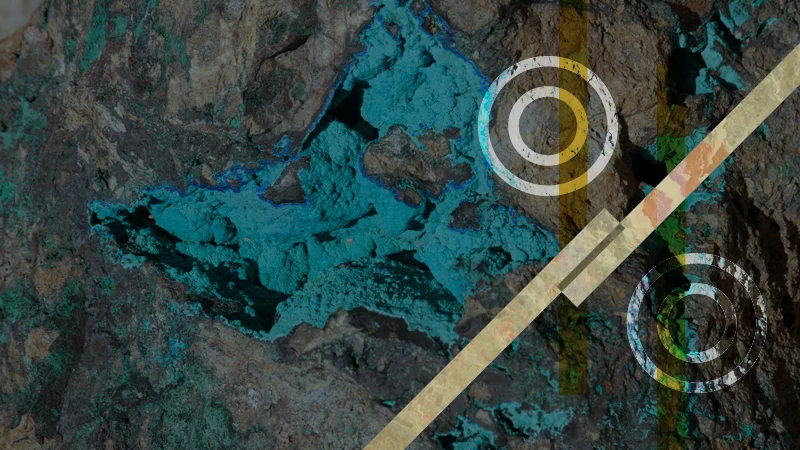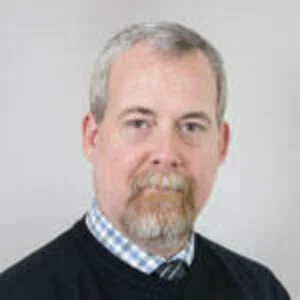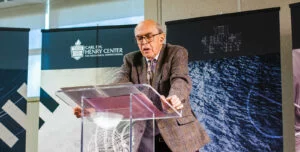Eberhard Jüngel’s most important and enduring contribution to the contemporary revival of interest in the doctrine of creation comes in the form of a demurral.
Jüngel never produced a programmatic or even comprehensive statement on creation; the closest thing a late essay on “the creative power of the word” in the course of which he coordinates the doctrine of creation and his idiomatic approach to the problem of theological language. Eberhard Jüngel, “Die schöpferische Kraft des Wortes,” in Gerhard Gäde, ed., Hören – Glauben – Denken: Festschrift für Peter Knauer S.J. zur Vollendung seines 70. Lebensjahres (Münster: LITVerlag, 2005), 7-24.
Theology as a Fool in the House of the Sciences
The theme of creation is virtually absent from Jüngel’s major monographs. In the climax of his argument in God as the Mystery of the World, his best-known and most challenging work, he employs a sharp distinction between Creator and creature to clarify the character of the triune God’s agency in the economy.Eberhard Jüngel, God as the Mystery of the World: On the Foundation of the Theology of the Crucified One in the Dispute between Theism and Atheism, trans. Darrell L. Guder (New York: Bloomsbury T&T Clark, 2014), 380-389. But such usage hardly counts as a fully-formed doctrine of creation. What we find here and elsewhere in Jüngel’s writings, rather, are brief hints, qualifications, and caveats for how a comprehensive account of creation ought to unfold.
Jüngel’s evident disregard for the doctrine of creation corresponds to a career-spanning indifference to the challenges posed to theology by the scientific discoveries and philosophies of science which have flourished since the Enlightenment. Unlike many of his contemporaries, perhaps most notably Wolfhart Pannenberg, Jüngel does not advocate for rapprochement between theology and science. Moreover, in spite of the fact that he spent mostJüngel’s evident disregard for the doctrine of creation corresponds to a career-spanning indifference to the challenges posed to theology by the scientific discoveries and philosophies of science which have flourished since the Enlightenment. of his academic career at Tübingen, one of Europe’s premier research universities for both the humanities and the sciences, Jüngel’s work in Christian dogmatics rarely crosses interdisciplinary boundaries. According to Jüngel, academic theological work, even in the research university, has “an existential relationship to the pulpit,” Eberhard Jüngel, Christ, Justice and Peace: Toward a Theology of the State, trans. D. Bruce Hamill and Alan J. Torrance (New York: Bloomsbury T&T Clark, 2014), 8. and its principal task is to hear the word of God and to reiterate it. Defined as such, theology is not obliged to engage, debate, or collaborate with the sciences—unless such interaction befits the cause of Christian proclamation. Jüngel acknowledges the significant risk involved in taking such a posture; namely, that theology might not be recognized as legitimately scientific or scholarly when viewed alongside the other university disciplines. For Jüngel, though, theology’s responsibility to the word of God trumps any aspirations for academic dignity. In the life of the university, theology must have the courage to forswear its own glory for the sake of its message, even if, by doing so, it is left to play the “fool in the house of the sciences”. Eberhard Jüngel, “Die Theologie als Narr im Haus der Wissenschaften,” in Johann Reikerstorfer, ed., Zum gesellschaftlichen Schicksal der Theologie: ein Wiener Symposium zu Ehren von Johann Baptist Metz (Münster: LITVerlag, 1999), 60-72.
Jüngel’s oeuvre exhibits a vision for theology as thought emerging from and animated by the word of God. His discussions of creation and the relationship between theology and science are determined by this commitment to the priority of God’s good news, which addresses us and liberates us from the shackles of sin. If Jüngel appears ambivalent or perhaps even antagonistic toward theology’s enthusiasm for creation and the natural sciences, it is because he worries that spotlighting such topics will distract theology from its principal task of receiving and reiterating the word.
“A More Natural Theology than So-Called Natural Theology”
A tidy summary of Jüngel’s position on this nest of issues emerges in the second chapter of his interesting little book Christ, Justice and Peace: Toward a Theology of the State, which he wrote on the occasion of the fiftieth anniversary of the Barmen Declaration (1934; hereafter BD). In this chapter Jüngel expounds BD 1, which, as he puts it, “does not give expression to one evangelical truth among others, but . . . expresses the one and only decisive truth about the way to God and the life from God”;Jüngel, Christ, Justice and Peace, 21. namely, the truth of the one word of God, Jesus Christ. Jüngel shows that BD 1 affirmed and upheld, in the midst of the terrible crisis of the German Kirchenkampf, that this one word of God is alone the source of the church’s witness and proclamation. The swift and violent consolidation of political and cultural power by the Nazis in 1933 and 1934 had forced the issue, as Hitler’s ‘total state’ had quickly positioned itself as the origin and destiny of the German Volk. By capitulating to Nazi ideology, the German Christians effectively replaced the word of Jesus Christ with the word of the state, listening to the Führer instead of to the God of the gospel.
Each of the six articles of the Declaration consists of a citation or two from Scripture, a clause of affirmation summarizing some salient point of Christian doctrine the truth of which was seen by the Confessing Christians to have been urgent during the crisis of 1933-4, and a clause of rejection clarifying what must be renounced in light of the gospel. In our chapter from Christ, Justice and Peace, Jüngel seizes upon the rejection clause of BD 1: “We reject the false doctrine that the Church could and should recognize as a source of its proclamation, beyond and besides this one word of God, yet other events, powers, historic figures, and truths as God’s revelation.”The Barmen Theological Declaration 1, trans. Douglas S. Bax. Reprinted in Ibid., xxix. While he recognizes that the immediate context of this renunciation was the encroachment of Hitler’s total state upon the spiritual domain of the church, Jüngel detectsBy capitulating to Nazi ideology, the German Christians effectively replaced the word of Jesus Christ with the word of the state, listening to the Führer instead of to the God of the gospel. in the rejection clause an argument pertinent to the perennial problem of natural theology, the supposition that one can achieve or acquire knowledge of God through rational reflection upon worldly or naturally occurring phenomena. According to Jüngel, BD 1 rules out natural theology by establishing the priority of the revealed word of God over ‘general’ revelation available through creation, the natural order, the state, Volk, and so on.
Jüngel observes, though, that BD 1 nowhere asserts that God is sheerly silent in the world apart from the gospel. On the contrary, “the only thing that is ruled out is that there are also other sources of the church’s proclamation outside the one word of God, which is Jesus Christ himself. It is not ruled out that God is able to speak in many and various ways.”Ibid., 26. For Jüngel, problems emerge for the church whenever proclamation starts with creation, the natural order, the state, Volk, or whatever, instead of with the gospel. What is required, Jüngel insists, is a trajectory of theology and confession which “leads in the other direction,”Ibid., 28. that is, from the church’s proclamation of the gospel toward an understanding of creation and the natural order and worldly phenomena. In such a reading, classical expressions of natural theology manifest the same basic theological problem posed by the onset of Nazism in the 1930s; namely, that, in the church’s attempt to draw inspiration from generally available religious truths, proclamation breaks loose from the good news of the one word. The inevitable, bitter end of this pathway is the idolatry St. Paul so vividly describes in Romans 1. The only recourse is for the church to choose a different tack, the origin of which is the gospel of Jesus Christ.
All of this sheds light upon Jüngel’s plea for “a more natural theology than so-called natural theology.”Ibid., 26. His worry, once again, is that ‘so-called natural theology’ endeavors to reach the God of the gospel through things at hand in the world. To the contrary, genuine natural theology “knows Jesus Christ as the one who has reconciled both human beings and the world,” and from this knowledge—that is, on the basis of the gospel of reconciliation—can “think anew” about God’s creative work in the world.Ibid., 27. “Here new ways open up,” Jüngel writes. And, at odds with classical natural theology, “these new ways lead in the other direction, moving out from this one word of God to the world; ways to nature and to history—ways of knowledge and life which lead ever more deeply into this world as God’s creation.”Ibid., 28.
Reading the First Article through the Lens of the Second
This pattern—from the word of the gospel toward the ‘many and various ways’ that God might otherwise speak in the world—obtains throughout Jüngel’s writings. And it helps to explain his conspicuous disinterest in the doctrine of creation, in the positive exposition of God’s relation to the domain of nature, and in building bridges between theology and the natural sciences. For Jüngel, the chief and evergreen task of theology is to remind the church that the source and essence of genuine Christian proclamation is the message of the death and resurrection of Jesus Christ. Theology can get around to the exposition of the doctrine of creation, but only subsequently to and on the basis of its Christological confession. To put it another way: For Jüngel, theology must read the first creedal article (“I believe in God, the Father almighty, Creator of heaven and earth. . .”) through the lens of the second (“I believe in Jesus Christ. . .”). To reverse this order is to jeopardize the evangelical character of theology and, in turn, to destabilize both creedal articles. UnmooredFor Jüngel, the chief and evergreen task of theology is to remind the church that the source and essence of genuine Christian proclamation is the message of the death and resurrection of Jesus Christ. from Christology, the theology of the first article, including the doctrine of creation, takes on a life of its own and becomes a speculative exercise; Christology, falling in step behind the exposition of the first article and the natural theology propped up to support it, elides into apologetics or Christian philosophy. Speculation, apologetics, and philosophy: Jüngel insists that such enterprises are not theology. By starting in the wrong place and following the pathway of thought in the wrong direction, theology slips its evangelical responsibility and becomes something else entirely.
While much more can be said regarding Jüngel’s approach to the location and proper ordering of the doctrine of creation vis-à-vis Christology, the preceding exposition captures the broad contour of his insight. Jüngel’s program reflects the tendency, quite common in modern dogmatics, of prioritizing the second article over the first article. For theologians committed to such an agenda for the arrangement of theological claims, Jüngel proves to be a sturdy ally, who persistently and with the panache of a confident prophet reminds the church that theology must begin and end with the confession of Jesus Christ, never otherwise. On the other hand, those convinced that, in its order of topical exposition, theological work can and should begin with the first article and proceed to the second will find Jüngel’s protest wanting. Unfortunately, Jüngel never published a constructive account of the doctrine of creation emerging from his insight into the structure of theology.While Jüngel lectured on the doctrine of creation in Tübingen over the Sommersemester of 1988, he never published the massive catalogue of theses he used for the course. In the end, then, while we receive from him an urgent plea to allow the Christological confession at the heart of the faith to shape our theologizing about creation, the natural world, the relationship between Christian truth claims and the discoveries of science, and so on, he never shows us just how his ‘more natural theology than so-called natural theology’ might unfold in terms of a concrete exposition of Creator, creation, and creature.








Comments
Be the first one to make a comment!